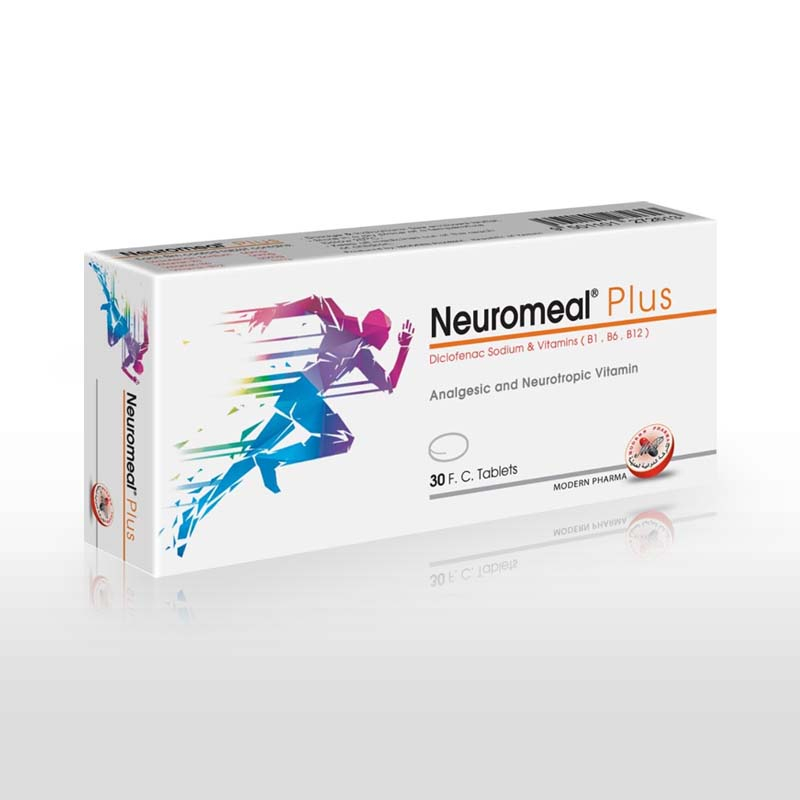Neuromeal plus
Neuromeal® plus is a combination of Diclofenac sodium¸ vitamin B1, B6 and B12. Diclofenac belongs to a class of drugs called nonsteroidal anti-inflammatory drugs (NSAIDs) that are used for the treatment of mild to moderate pain, fever, and inflammation. Like all other vitamins, vitamin B1, B6 and B12 are essential nutrients, which the body cannot produce itself. The efficacy of the combined vitamins B1, B6 and B12 is superior to that of the individual vitamins alone. Furthermore, the combination of these vitamins with Diclofenac has an analgesic, anti-inflammatory and synergic neuro-regenerative effect, where the addition of B vitamins to Diclofenac increased its analgesic effect. The effect of Neuromeal® plus in disease of the nervous sys-tem involves compensation of accompanying vitamin B deficiencies and stimulation of natural healing processes in the nervous tissue. Neuromeal® plus tablet works by reducing the substances in the body that cause inflammation and pain, metabolizing carbohydrate thus maintains normal growth which produce antibodies and hemoglobin, by keeping blood sugar level in normal range.


